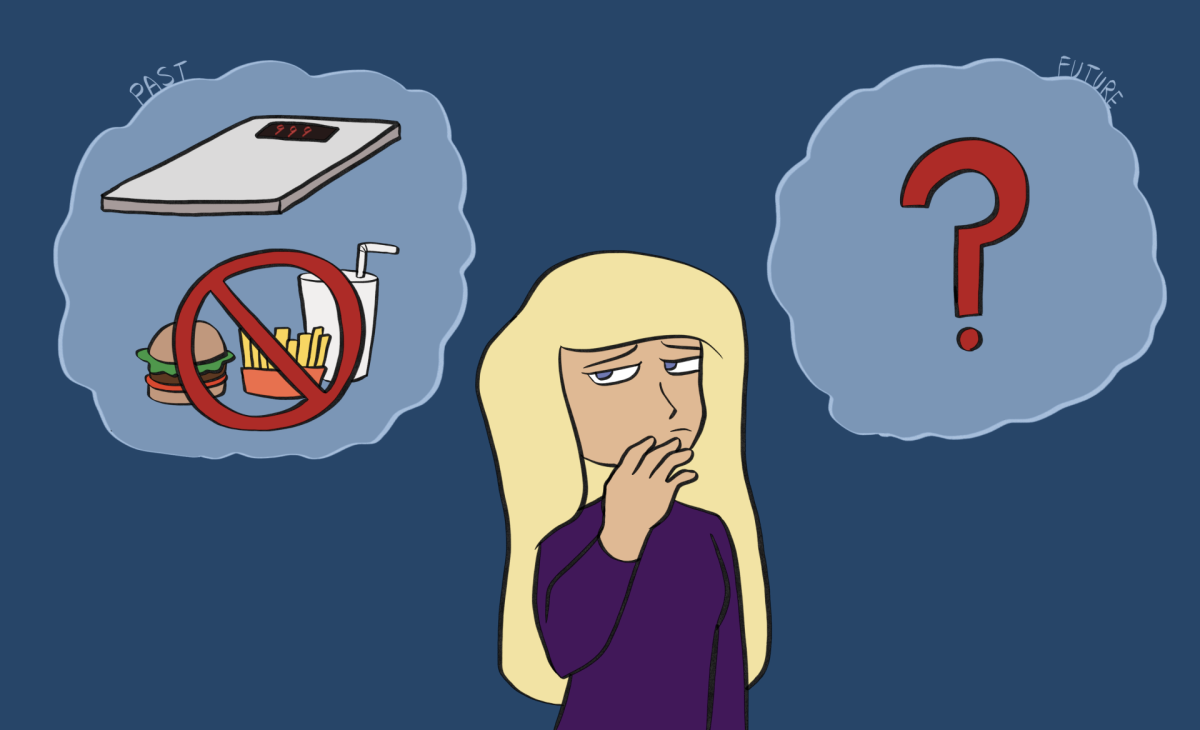
29-year-old Brittany Maynard, who was diagnosed with terminal brain cancer, has decided she will end her life Nov, 1. Maynard will take her life through a process known as physician-assisted suicide. The Dying with Dignity Act, which is legal in Oregon, Washington State, Vermont, Montana and New Mexico, allows terminally ill patients to ask their doctor for lethal prescription drugs. Maynard has raised a lot of controversy about her decision to “die with dignity.”
Freshman Zsa Zsa Quach knows the pain of dealing with situations such as Maynard’s. Having a younger brother who is a leukemia survivor and a grandfather diagnosed with colon cancer, Quach understands the mindset that Maynard has developed.
“With Brittany’s case, if she feels content with her life, feeling that she lived her life to the fullest, it’s her choice and I respect that because going through cancer is such a journey. If I was in her shoes, I would think the same way because I would never put anyone who loved me so much through that,” Quach said.
Quach said there’s an aspect many people have overlooked: contentment. When you think about denying these victims the opportunity to die happily, it is completely unethical, and by allowing them to suffer while living, you’re killing them in the process.
In the 2011 Emmy-nominated documentary, “How to Die in Oregon,” I was introduced to a woman by the name Cody Curtis, whose life changed after a perceived stomach ache turned out to be large cancer cells in her liver. After months of suffering, which included being in a coma for 50 days, Curtis made the decision to go through with the lethal prescription. Not everyone agreed with the route Curtis chose. Dr. Katherine Morris, Curtis’ physician, said she was extremely conflicted as she got more attached to her patient.
“This is a law that supports my value, but I’m going to write a prescription to end someone’s life,” Morris said.
Doctors are not the bad guys in these situations. Derek Humprey, author of the book, “Final Exit,” also lost his first wife to cancer. “The doctor doesn’t kill the
patient, the patient kills themselves,” he said. Once the doctors write their approval for the prescription, the power and control is all in the hands of the patient.
“No one is forcing them to take the drug. It serves as an aid, so when things are taking a turn for the worst, the patient has the option to die peacefully,” Humphrey said.
I couldn’t help but think of my own family as I became more acquainted with the topic of physician-assisted suicide. Diseases such as Alzheimer’s and cancer run in my blood. Most recently, I’ve had to see my great-aunt Gerald change into a complete stranger. When my mom shows me pictures of my aunt’s bruised face from a bad fall, or during holidays when she doesn’t remember me coming up to hug her, my heart aches. She’s lost control of her life, so I begin to question if the life she currently leads is even worth living any more? I would want someone, like my aunt, to have access to these prescribed lethal drugs. That way, she could make the decision for herself regarding how much longer she wants to suffer.
When looking at this debate, you have to set aside your personal emotions and religious oppositions and begin to look at what these victims and their families have to deal with. I know that when I die I want it to be peaceful. No struggles, aches or tears. I imagine dying in a serene, dignified manner with my family and friends surrounded around me. Across America, everyone deserves the same opportunity. You have a right to live a happy life, and dying shouldn’t be any different.








VT • Oct 28, 2014 at 4:40 pm
Gary Null eliminated cancer from 100 patients who were determined to be terminal and they were told to put their lives in order. Cancer can’t survive in alkaline environments, but thrives in acidic environments. He completely changed their diets and put them on certain nutrient supplements. I’m not sure if any of them had brain cancer, but it would be worth contacting him. He has a radio show out of NY City daily and a place in Florida. He’s the author of roughly 100 books.
Also stop using a cell phone. He’s has reported there are at least 25 studies showing that cell phones damage brain tissue.
Kristin Catalano • Oct 27, 2014 at 11:30 am
I am a Hospice nurse. I am also the RN/Director of a home that cares for the dying. We are not a facility. We are a private home and I function as a wife or mother. We are not regulated. We help people die the way they choose to die. I have been at the bedside of hundreds. I have been asked by many of our residents to end their suffering. My hands are tied. For those of us who love the dying, who care for the dying, who sit helplessly and watch I thank Brittany. She has people talking and thinking. For me I would not pick the day ahead of time because I would feel that the date may impair my present even more than the disease had. I would have the medicine handy and use it on the day that felt right. Make no mistake you know when the time is right. The dying have been amazing teachers. I have asked that our volunteer who is at the Wailing Wall this week pray for Brittany and her family. It takes an enormous amount of courage to do what Brittany is doing and an enormous amount of love to support her through it. With Love….